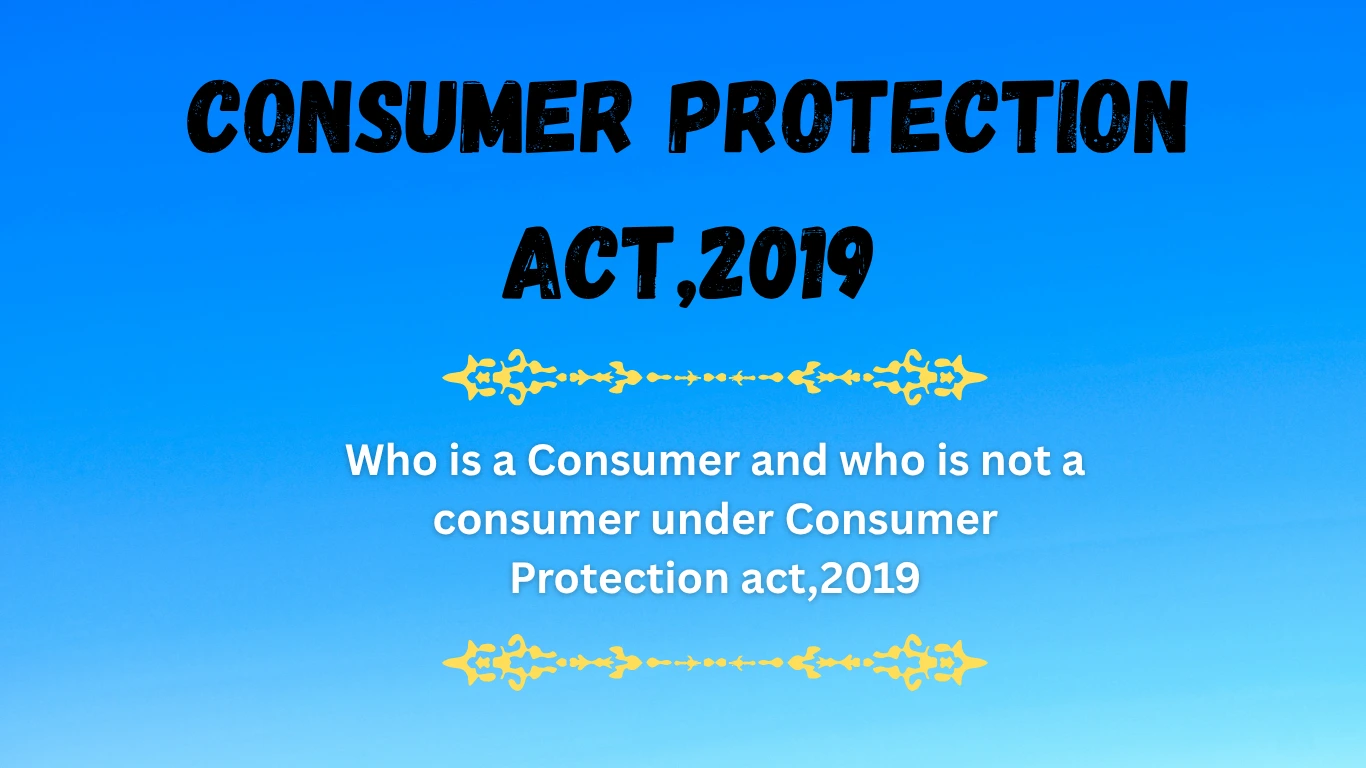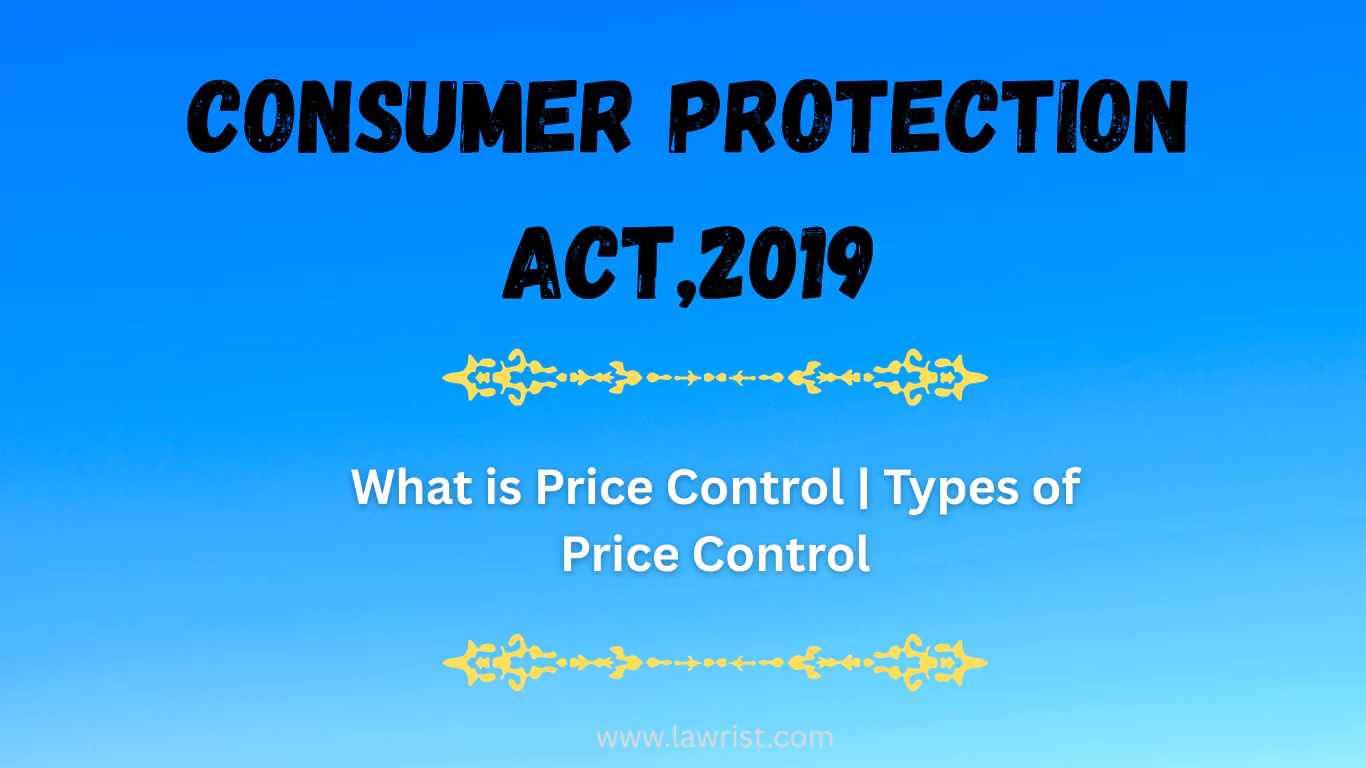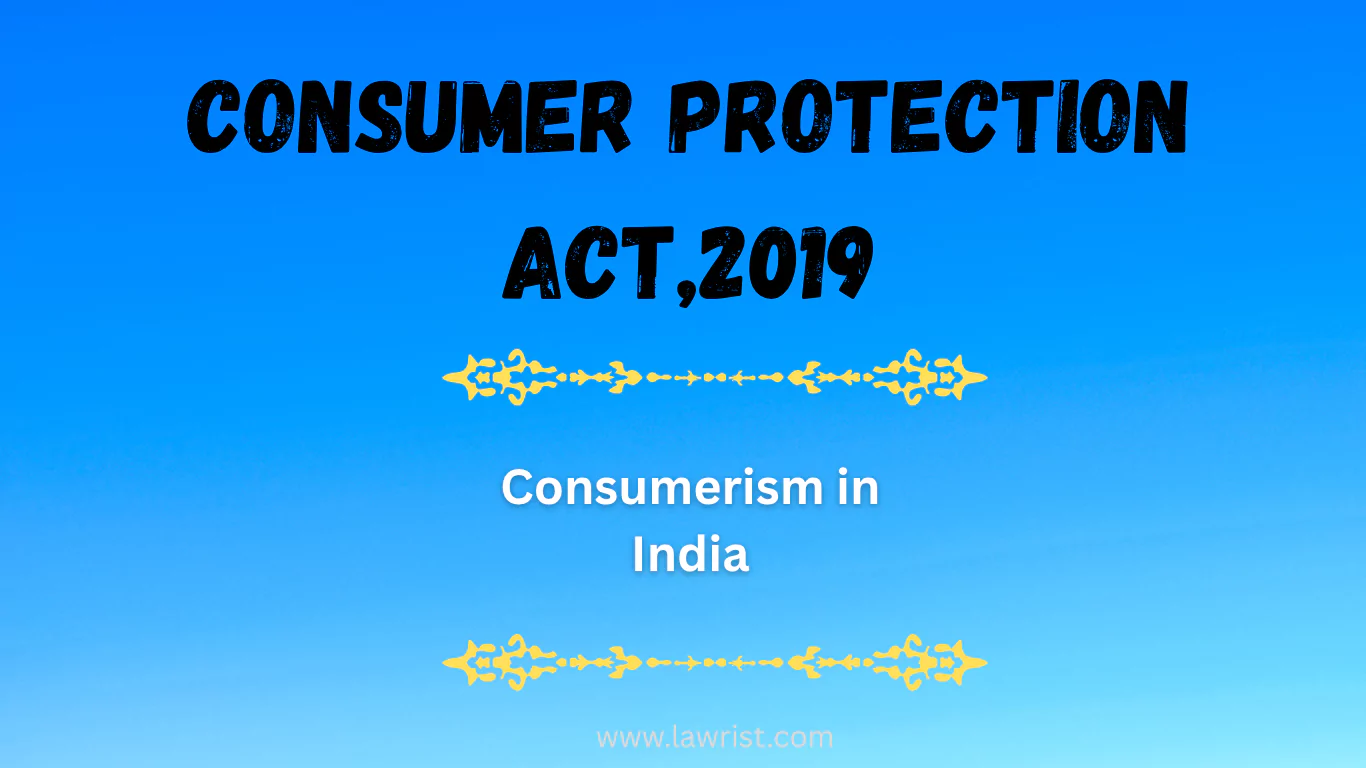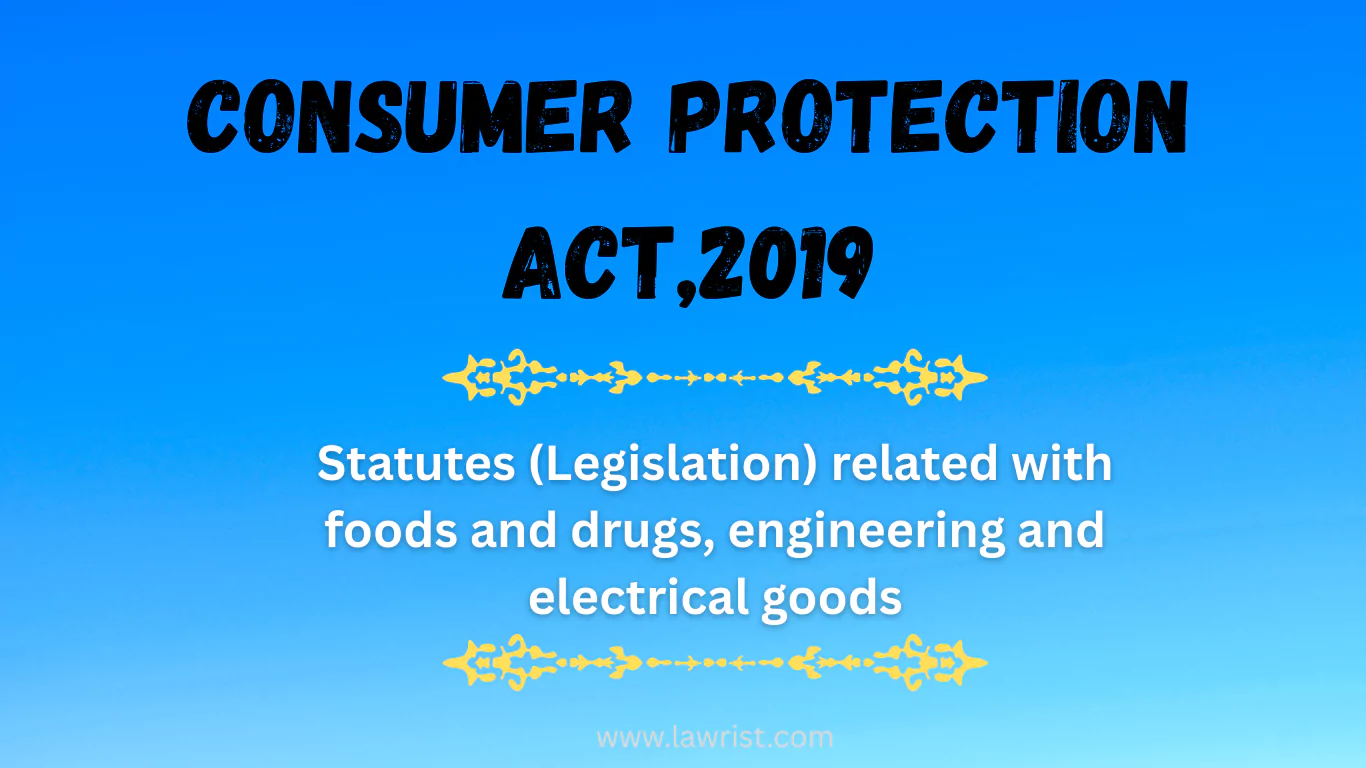Who is a consumer?
A ‘consumer’ is an individual who consumes goods – manufactured by firms or created by nature (air, water, etc.) and services offered by government or firms – hospital, educational institutions, etc. Any individual who purchases products/services for his personal use and not for manufacturing or resale.
Thus, a consumer is a user of goods and services.
Section 2(7) of the Act defines ‘consumer’ as ANY person who:
- buys any goods for a consideration which has been paid or promised or partly paid and partly promised, or under any system of deferred payment and includes any user of such goods other than the person who buys such goods for consideration paid or promised or partly paid or partly promised, or under any system of deferred payment, when such use is made with the approval of such person, but does not include a person who obtains such goods for resale or for any commercial purpose; or
- hires or avails of any service for a consideration which has been paid or promised or partly paid and partly promised, or under any system of deferred payment and includes any beneficiary of such service other than the person who hires or avails of the services for consideration paid or promised, or partly paid partly promised, or under any system of deferred payment, when such services are availed of with the approval of the first mentioned person, but does not include a person who avails of such service for any commercial purpose.
Beneficiary of services is also a consumer:
When A hire services from B, may hire it for himself or for any other person. In such a case, the beneficiary (user) of these services is also a consumer.
Example – A takes his son ‘B’ to a doctor for B’s treatment. Here ‘A’ is hirer of services of the doctor and ‘B’ is beneficiary of these services. For the purpose of the act, both A and B are consumers.
This is an exception to the rule of Privity of Contract.
Who is not a consumer?
A person is not a consumer:
A person who obtains;
- goods free of charge
- who avails services free of charge
- who obtains goods for resale or for any commercial purposes
- who avails services for any commercial purposes
- who avails services under contract of service
As per the provisions of the Act, commercial purpose does not include use by a person of goods bought and used by him exclusively for the purposes of earning his livelihood by means of self-employment.
Some relevant case laws:
- Franchise holder is not a consumer.
Case: The General Manager, Madras Telephones v. R. Kannan
- Student is not a consumer.
Case: Chairman, Board of Examination, Madras v. Mohidin Abdul Quadin
- Teachers employed in govt. aided school/college are not consumer.
Case: Principal, RSM Inter College v. Smt. Rekha and others
- Purchase made for commercial purpose, the complainant was not a consumer.
Case: Goodrej Computers v. International Data Management Ltd.
- Purchase of computer/photocopier/electronic typewriter made for commercial purpose, the consumer is not entitled to relief under the CPA.
- Sale of immovable property can’t be subject matter of complaint under the CPA.
Case: Ravin Bharti Land Development and Finance Pvt. Ltd. v. Punjab National Bank (1993)
- Defects found in goods during warranty period.
Case: Maruti Udyog Ltd. v. M.S. Hameed
- Vehicles possessed under a hirer purchase agreement, hirer complainant would not be a consumer.
Case: Tata Motors Ltd. v. Sant Bahadur Singh and another (2007)
- Complaint by wife of a govt. servant, she is not a consumer.
Case: Manoranjan Tiwari v. State Govt. of Rajasthan
ANY PERSON WHO OBTAINS THE GOODS FOR ‘RESALE’ OR COMMERCIAL PURPOSES’ IS NOT A CONSUMER –
The term ‘for resale’ implies that the goods are brought for the purpose of selling them, and the expression ‘for commercial purpose’ is intended to cover cases other than those of resale of goods. When goods are bought to resell or commercially exploit them, such buyer or user is not a consumer under the Act.
Examples:
1. A jeep was purchased to run it as a taxi. The question was whether the buyer of the jeep was a consumer under the Act. The Rajasthan State Commission held that to use the jeep as a taxi with the object to earn profits was a commercial purpose, and therefore, the buyer/user was not a consumer within the meaning of the Act. [Smt. Pushpa Meena v. Shah Enterprises (Rajasthan) Ltd. (1991) 1 CPR 229].
2. L Ltd. purchased a computer system from Z. The computer system was giving constant trouble and Z was not attending it properly. L Ltd. filed a complaint against Z with the National Commission. Z contended that L Ltd. was not a consumer under the Act because computer system was used for commercial purposes. L Ltd. argued that computer system was not directly used of commercial purposes rather it was used to facilitate the work of the company. The Commission rejected the argument on the grounds that the system made part of the assets of the company, and its expenses were met by it out of business income. Thus the said purchase was a purchase for commercial purposes and L Ltd. was held not to be a consumer under the Act.
One thing is simple and clear from the decided cases that what is important to decide is - Whether a particular good is used for commercial purposes. If it is the buyer/user is not a consumer, and if it is not - the buyer/user is a consumer.



